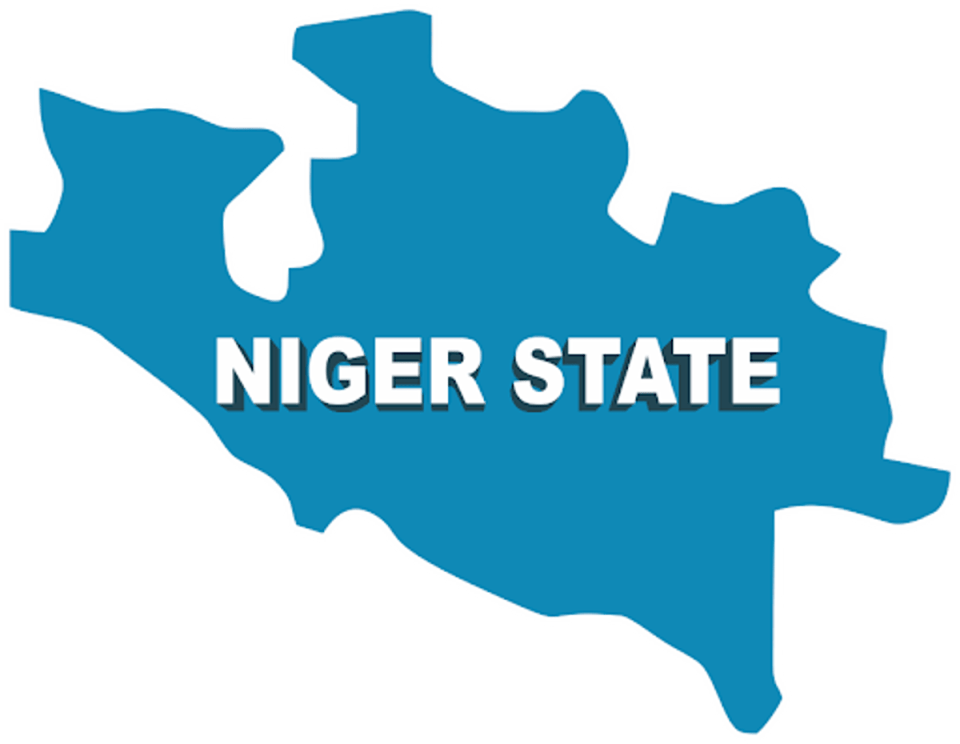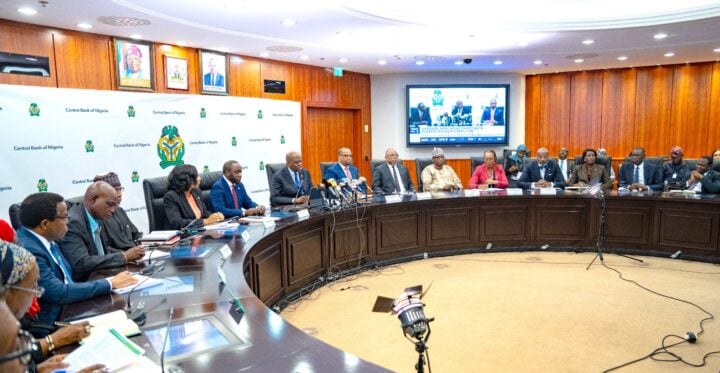Push for financial inclusion gains fresh momentum
Central Bank of Nigeria aims to provide Nigerians in the diaspora with seamless financial services at home while intensifying its inclusion efforts, writes
Nigeria has recorded notable progress in its financial inclusion efforts, with access rising from 56 per cent in 2020 to 64 per cent in 2023, according to Enhancing Financial Innovation and Access’s report.
EFInA explained that the growth was driven by non-banking channels, such as fintech.
Despite the significant progress made in the inclusion drive, Nigerians in the diaspora have been overlooked, despite their notable contributions to the country’s inflow.
Diasporan contributions
In 2024, diaspora remittances to Nigeria surged to a five-year high of $20.98bn, marking a nine per cent increase from the previous year. Personal remittance inflows alone accounted for $20.93bn, according to the Central Bank of Nigeria.
To address the exclusion of diasporan Nigerians from financial inclusion, the central bank, in collaboration with the Nigeria Inter-Bank Settlement System, recently launched the Non-Resident Biometric Verification Number platform in Abuja.
The NRBVN aims to foster innovation, promote inclusive growth, and enhance economic integration for Nigeria’s sustained prosperity.
According to the CBN Governor, Olayemi Cardoso, the NRBVN digital gateway provides seamless access to banking services such as account opening and funds transfer, while ensuring convenience and an efficient cost management framework for bank customers.
Cardoso explained that historically, Nigerians living in the diaspora have encountered significant challenges when trying to access financial services such as payments, savings, loans, insurance, and pension products in Nigeria.
The NRBVN platform eliminates the need for mandatory physical verification when obtaining a BVN, reducing both time and financial burdens—particularly for individuals living in remote areas.
Diasporan Nigerians can now remotely obtain their BVN swiftly and securely through digital verification and robust Know Your Customer processes,
The single digital gateway will provide seamless access to banking services, such as opening accounts and securely sending funds, which will greatly enhance convenience and reduce costs.
“In developing this solution, we draw valuable lessons from countries such as India and Pakistan. India’s Non-Resident External and Non-Resident Ordinary accounts have significantly simplified banking processes for its diaspora, and Indian banks currently hold approximately $160bn in diaspora deposits, achieved by providing attractive and tailored products and services,” the CBN boss enunciated.
He noted that in developing the NRBVN, the team understudied Pakistan’s innovative Roshan Digital Account, which offer fully online onboarding and investment opportunities and successfully attracting nearly $10bn since its inception.
Cardoso emphasised the importance of digital financial inclusion and customised products in fostering significant engagement and substantial economic contributions from diaspora communities.
“Our NRBVN platform is similarly designed to offer more than access, it is about opportunity. It is complemented by the Non-Resident Ordinary Account and Non-Resident Investment Account initiatives, collectively forming a robust framework designed to incentivise our global diaspora to channel their funds through formal financial systems into productive uses at home.
“By providing investment accounts, diasporans will have access to a variety of growing investment opportunities in our debt and equities markets, as well as products such as mortgages, insurance, and pensions. Importantly, diasporans will also have the flexibility to fully repatriate the proceeds of their investments in accordance with existing regulations, ensuring confidence and convenience in managing their assets,” he said.
Cardoso urged Nigerian banks to take the initiative in designing products that cater specifically to the unique needs of the diaspora community.
He stressed that innovative and appealing financial solutions could strengthen diaspora engagement, expand financial inclusion, and drive higher remittance inflows.
He added, “Over the past year, our policy frameworks have undergone extensive refinements, informed by sustained dialogue with International Money Transfer Operators. The introduction of the willing buyer, willing seller regime, licensing of additional IMTOs, and market reforms that have facilitated currency convergence are notable examples. Consequently, remittance flows through official channels have risen markedly from $3.3bn in 2023 to $4.73bn last year.
“With the introduction of NRBVN and complementary policy measures, we are optimistic about achieving our ambitious target of $1bn in monthly remittance flows, a goal we believe is entirely achievable given the growing trust and convenience in formal remittance channels.
“To meet these targets, collaboration and compliance with established regulatory frameworks remain essential. All stakeholders must adhere strictly to the FX Code and other relevant regulatory guidelines. This is critical to ensuring market stability, integrity, and overall confidence in Nigeria’s financial system.”
Cardoso encouraged IMTOs to join the NRBVN platform, aligning with the CBN’s goal of creating a secure, efficient, and inclusive financial system for Nigerians worldwide.
A fully integrated system, he noted, would allow every Nigerian abroad to contribute to national development through reliable and affordable channels.
“The NRBVN is a dynamic initiative, one that will continue to evolve in response to the needs of its users. It presents a unique opportunity to learn, to innovate, and to adapt. We encourage all stakeholders to engage actively, share insights, and help shape a system that serves millions of Nigerians across geographies and generations. The NRBVN is not just a tool; it is a bridge between Nigeria and its global citizens,” he asserted.
He reaffirmed the CBN’s goal to cut remittance costs, which currently average over seven per cent in Sub-Saharan Africa.
Reducing these costs will make formal channels safer and more attractive, increasing the positive impact of diaspora remittances on Nigerian households and the economy.
Under Cardoso, the CBN has demonstrated commitment to financial inclusion, economic integration, and national growth, ensuring all Nigerians can contribute to the country’s future, regardless of location.
A survey conducted in Nigeria in 2008 by EFInA revealed that about 53 per cent of adults were excluded from financial services.
Nigeria saw progress in financial inclusion, with the exclusion rate dropping from 53 per cent in 2008 to 46.3 per cent in 2010.
Building on this momentum, CBN launched the National Financial Inclusion Strategy on October 23, 2012, aimed at reducing the exclusion rate to 20 per cent by 2020.
The targets included increasing access to financial services for adult Nigerians: payments from 21.6 per cent to 70 per cent, savings from 24 per cent to 60 per cent, credit from two per cent to 40 per cent, insurance from one per cent to 40 per cent, and pensions from five per cent to 40 per cent.
The strategy also targeted improvements in service delivery channels, including increases in bank branches, microfinance bank branches, ATMs, POS terminals, and mobile agents per 100,000 adults.
These targets were set based on benchmarking with peer countries and consideration of Nigeria’s growth factors.
According to EFInA, an inclusive financial sector is characterised by the diversity of financial services providers, the level of competition between them, and the legal and regulatory environments that ensure the integrity of the financial sector and access to financial services for all.
Global evidence indicates that access to financial services drives economic growth and wealth creation, making it essential for overcoming Nigeria’s poverty trap.
“It is critical for regulators and policymakers to create an enabling policy environment to actively promote both the demand for and the supply of financial services to the unbanked and under-banked,” EFInA argued.
The benefits of increased savings in banks and access to credit for the population and businesses, especially in the informal sector, are immense.
Nigeria’s informal sector, valued at $240bn, is a vast untapped resource. The large amounts of money circulating within this sector hinder the country’s economic growth and development. Tapping into this sector’s potential could have a significant positive impact.
Diaspora remittances inflows
To enhance diaspora remittances and stabilise the naira, the central bank has recently introduced two new financial products aimed at Nigerians living abroad. The Non-Resident Nigerian Ordinary Account and the Non-Resident Nigerian Investment Account have been created to simplify remittances, promote investments, and encourage financial inclusion among Nigerians in the diaspora.
The apex bank noted, “The Central Bank of Nigeria is pleased to inform the general public of the introduction of the Non-Resident Nigerian Ordinary Account and Non-Resident Nigerian Investment Account targeted at Nigerians in diaspora.”
The initiative aims to offer a secure and efficient platform for managing funds and investing in Nigeria’s financial markets.
The President of the Association of Bureaux De Change Operators of Nigeria, Dr Aminu Gwadabe, stated that diaspora remittances are a vital source of foreign exchange for Nigeria, complementing foreign direct investment and portfolio investments.
He highlighted that the CBN initiatives have facilitated the continued growth of these inflows, aligning with the bank’s goal of doubling formal remittance receipts within a year.
Gwadabe expected remittances to increase further due to the CBN’s ongoing efforts to enhance public confidence in the foreign exchange market, strengthen a robust and inclusive banking system, and promote price stability, all of which are essential for sustained economic growth.
In a report, “Diaspora remittances: The power behind Africa’s sustainable growth”, Regional Vice President of Africa at Western Union, Mohamed Touhami el Ouazzani, said remittances may be measured through the movement of money, but their real impact is measured in lives changed.
He revealed that in 2023 alone, $90bn flowed into Africa from its global diaspora, an amount comparable to the Gross Domestic Product of entire nations.
He said that remittances symbolise deep ties that keep communities connected across borders.
“Families with a breadwinner working abroad depend on these funds to provide vital support for day-to-day needs. They also build the foundation for broader financial stability.
“Beyond their immediate impact, remittances are powerful drivers of economic change. They fuel infrastructure development, spur entrepreneurship, and promote financial inclusion – all essential for long-term economic development. Ghana’s National Financial Inclusion and Development Strategy is simplifying access to remittances, while countries like Kenya, Ethiopia and Nigeria are tapping into diaspora bonds to fund infrastructure and other national projects,” el Ouazzani mentioned.










